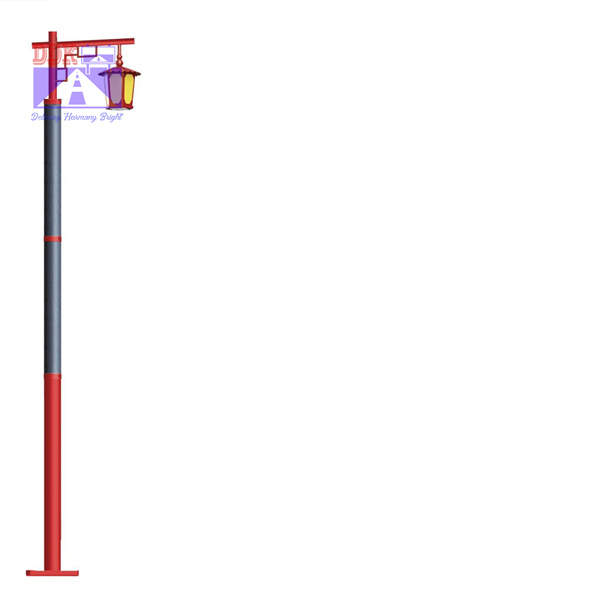NEWS
Also found in:DictionaryThesaurusMedicalFinancialAcronymsIdiomsEncyclopediaWikipedia.Related to lien:lineConstruction lien
A right given to another by the owner of property to secure a debt, or one created by law in favor of certain creditors.
A lien is an encumbrance on one persons property to secure a debt the property owner owes to another person. The statement that someones property is tied up describes the effect of liens on both real andPersonal Property.Lienis a French word meaning knot or binding that was brought to Britain with the French language during the Norman Conquest in 1066.
In many states a mortgage is regarded as a lien, not a complete transfer of title, and if not repaid the debt is recovered by foreclosure and sale of the real estate. Real estate is also affected by liens that favor local, state, and federal governments for real estate taxes and special assessments; state and federal governments for income and sales or use taxes; condominium and homeowners associations; and general contractors, subcontractors, material suppliers, and laborers for the value of work or materials installed on real estate. The filing requirements andstatutes of limitationsfor these liens vary according to the law of each state.
Perhaps the riskiest move a purchaser of real estate can make is to buy without making certain that there are no liens on the property or without obtaining title insurance against liens on the property. In many states liens are secret: that is, they are hidden from the public records until required to be filed.
The priority of liens on a construction project relates back to the first visible commencement of the work. This line of law makes the last work, perhaps landscaping, equal in priority to the first, excavating. This means that during the entire work of construction, the owner must obtain waivers of lien from each subcontractor and material supplier. Without these waivers the real estate is subject to liens of all such claimants, if the general contractor, though paid in full, fails to pay them. A waiver is a voluntary relinquishment of a known right. Waivers of lien must be in writing, give a sufficient description of the real estate, and be signed by the one claiming a lien. No payment need be made if the claimant agrees to release the land from the lien and rely only on the credit of the owner or general contractor for payment of the debt.
Lien claimants are protected in this way because all their materials and labor are buried in the real estate, having become part of it. They cannot be reclaimed without irreparable damage to the property. Unlike mortgage liens, the liens of these claimants, called mechanics liens, offer no redemption in a foreclosure judgment.
The published statutes of a state usually have a section on the topic of liens under which is listed most or all of the liens allowed by state law. A great number of persons in trade or business obtain liens for their services to personal property: garage keepers and warehouse owners for unpaid rent for storage; automobile mechanics for repairs; jewelers; dry cleaners and furriers; artisans for restoration of art objects; bankers; factors dealing in commodities; and many others. Not to be outdone, attorneys have a lien for their fees and may retain clients filesperhaps containing vital information or documents needed by the client for work or family affairsuntil the fees are paid.
A judgment lien can, when entered by a court after a suit, affect all the real and personal property of one who fails to pay a debt, such as a promissory note to a bank, credit card balance, or judgment for injury the person may have caused. In some states the lien of a properly docketed judgment affects all the debtors property in every county where notice of the judgment is filed. State law governs the length of time such liens survivewhich in some states is as long as ten years. Judgments can be enforced by executions and sale of property until the amount due is satisfied.
Courts ofEquityhave the power to create so-called equitable liens on property to correct some injustice. For example, one whose money was embezzled may obtain a lien on the wrongdoers property by suing for aConstructive Trust.
Liens are discharged after a certain length of time. The requirements for commencing their foreclosure vary among the states. If a person pays and satisfies a lien, she should be careful to obtain a written, legally sufficient release or satisfaction, and file or record it in the appropriate government office, so that her title and credit reports no longer show the encumbrance.
n. any official claim or charge against property or funds for payment of a debt or an amount owed for services rendered. A lien is usually a formal document signed by the party to whom money is owed, and sometimes by the debtor who agrees to the amount due. A lien carries with it the right to sell property, if necessary, to obtain the money. A mortgage or a deed of trust is a form of lien, and any lien against real property must be recorded with the county recorder to be enforceable, including an abstract of judgment which turns a judgment into a lien against the judgment debtors property. There are numerous types of liens including: a mechanics lien against the real property upon which a workman, contractor or supplier has provided work or materials, an attorneys lien for fees to be paid from funds recovered by his/her efforts, a medical lien for medical bills to be paid from funds recovered for an injury, a landlords lien against a tenants property for unpaid rent or damages, a tax lien to enforce the governments claim of unpaid taxes, or the security agreement (UCC-1) authorized by the Uniform Commercial Code. Most liens are enforceable in the order in which they were recorded or filed (in the case of security agreements), except tax liens which have priority over the private citizens claim. (See:judgment debtormechanics lienmortgagedeed of trustlandlords lienequitable lien)
Copyright © 1981-2005 by Gerald N. Hill and Kathleen T. Hill. All Right reserved.
a security right permitting one person to retain possession of goods owned by another until the claims of the person retaining the goods as against the owner have been satisfied.
An agent has a lien on the goods and chattels of his principal in respect of all claims arising out of his employment as an agent. The lien entitles the agent to detain goods in his possession belonging to his principal until all the legitimate claims of the agent have been satisfied. In connection with moveable property, a lien is the right of an agent or bailee to retain possession of a chattel entrusted to him until his claim has been paid; in relation to land, a vendor has a lien over the land for unpaid purchase money. Liens are eitherparticular,as, for example, a right to retain a thing for some charge or claim arising out of or in connection with the thing, like that of a garage proprietor, orgeneral,as, for example, a right to retain a thing not only for such charges or claims but also for a general balance of accounts between the parties in respect of other dealings of a like nature, such as the solicitors lien.
The unpaid seller of goods who is in possession of the goods is entitled to retain possession of them until payment or tender of the price. This lien exists only where the buyer becomes insolvent. The seller may exercise his lien or right of retention notwithstanding that he is in possession of the goods as agent or bailee or custodier for the buyer. In order to exercise his lien, the seller must be in possession of the goods. He does not lose possession merely because he gives temporary or limited control of goods to the buyer, e.g. to mark them or pack them in his own containers. The unpaid seller of goods loses his lien or right of retention in respect of the goods in three situations:
(1) when he delivers the goods to a carrier or other bailee or custodier for the purpose of transmission to the buyer without reserving the right of disposal of goods;
(2) when the buyer or his agent lawfully obtains possession of the goods;
(3) a lien or right of retention may be lost by waiver.
On the dissolution of a partnership, each partner has a general lien on the firms surplus assets; this lien arises out of a partners statutory right to have the surplus assets (after payment of the firms debts and liabilities) applied in payment of what may be due to the partners respectively (after deducting what may be due from them as partners to the firm).
In carriage of goods by road cases, the carrier has a right at common law to retain possession of goods until he is paid the freight owing to him for the carriage of the goods. In carriage of goods by sea cases, the carrier has a lien at common law not only in respect of the freight and general average contribution due in respect of the goods upon which he exercises the lien but also for sums due for freight and general average in respect of all the goods of the same owner in the same ship of the same voyage.
LIEN, contracts. In its most extensive signification, this term includes every case in which real or personal property is charged with the payment of any debt or duty; every such charge being denominated a lien on the property. In a more limited sense it is defined to be a right of detaining the property of another until some claim be satisfied. 2 East 235; 6 East 25; 2 Campb. 579; 2 Meriv. 494; 2 Rose, 357; 1 Dall. R. 345.
2. The right of lien generally arises by operation of law, but in some cases it is created by express contract.
3. There are two kinds of lien; namely, particular and general. When a person claims a right to retain property, in respect of money or labor expended on such particular property, this is a particular lien. Liens may arise in three ways: 1st. By express contract. 2d. From implied contract, as from general or particular usage of trade. 3d. By legal relation between the parties, which may be created in three ways; When the law casts an obligation on a party to do a particular act, and in return for which, to secure him payment, it gives him such lien; 1 Esp. R. 109; 6 East, 519; 2 Ld. Raym. 866; common carriers and inn keepers are among this number. 2. When goods are delivered to a tradesman or any other, to expend his labor upon, he is entitled to detain those goods until he is remunerated for the labor which he so expends. 2 Roll. Ab. 92; 3 M. 14 Pick. 332; 3 Bouv. Inst. n. 2514. 3. When goods have been saved from the perils of the sea, the salvor may detain them until his claim for salvage is satisfied; but in no other case has the finder of goods, a lien. 2 Salk. 654; 5 Burr. 2732; 3 Bouv. Inst. n. 2518. General liens arise in three ways; 1. By the agreement of the parties. 6 T. R.14; 3 Bos. & Pull. 42. 2. By the general usage of trade. 3. By particular usage of trade. Whitaker on Liens 35; Prec. Ch. 580; 1 Atk. 235; 6 T. R. 19.
4. It may be proper to consider a few, general principles: 1. As to the manner in which a lien may be acquired. 2. To what claims liens properly attach. 3. How they may be lost. 4. Their effect.
5.-1. How liens may be acquired. To create a valid lien, it is essential, 1st. That the party to whom or by whom it is acquired should have the absolute property or ownership of the thing, or, at least, a right to vest it. 2d. That the party claiming the lien should have an actual or constructive, possession, with the assent of the party against whom the claim is made. 3 Chit. Com. Law, 547; Paley on Ag. by Lloyd, 137; 17 Mass. R. 197; 4 Campb. R. 291; 3 T. R. 119 and 783; 1 East, R. 4; 7 East, R. 5; 1 Stark. R. 123; 3 Rose, R. 955; 3 Price, R. 547; 5 Binn. R. 392. 3d. That the lien should arise upon an agreement, express or implied, and not be for a limited or specific purpose inconsistent with the express terms, or the clear, intent of the contract; 2 Stark. R. 272; 6 T. R. 258; 7 Taunt. 278;. 5 M. 15 Mass. 389, 397; as, for example, when goods are deposited to be delivered to a third person, or to be transported to another place. Pal. on Ag. by Lloyd, 140.
6.-2. The debts or claims to which liens properly attach. 1st. In general, liens properly attach on liquidated demands, and not on those which sound only in damages; 3 Chit. Com. Law, 548; though by an express contract they may attach even in such a case as, where the goods are to be held as an indemnity against a future contingent claim or damages. Ibid. 2d. The claim for which the lien is asserted, must he due to the party claiming it in his own right, and not merely as agent of a third person. It must be a debt or demand due from the very person for whose benefit the party is acting, and not from a third person, although the goods may be claimed through him. Pal. Ag. by Lloyd, 132.
7.-3. How a lien may be lost. 1st. It may be waived or lost by any act or agreement between the parties, by which it is surrendered, or becomes inapplicable. 2d. It may also be lost by voluntarily parting with the possession of the goods. But to this rule there are some exceptions; for example, when a factor by lawful authority sells the goods of his principal, and parts with the possession under the sale he is not, by this act, deemed to lose his lien, but it attaches to the proceeds of the sale in the hands of the vendee.
8.-4. The effect of liens. In general, the right of the holder of the lien is confined to the mere right of retainer. But when the creditor has made advances on the goods of a factor, he is generally invested with the right to sell. Holts N P. Rep. 383; 3 Chit. Com. Law, 551; 2 Liverm. Ag. 103; 2 Kents Com. 642, 3d ed. In some cases where the lien would not confer power to sell, a court of equity would decree it. 1 Story Eq. Jur. Sec. 566; 2 Story, Eq. Jur. Sec. 1216; Story Ag. Sec. 371. And courts of admiralty will decree a sale to satisfy maritime liens. Ab. Sh. pt. 3, c10. Sec. 2; Story, Ag. Sec. 371.
9. Judgments rendered in courts of record are generally liens on the real estate of the defendants or parties against whom such judgments are given. In Alabama, Georgia and Indiana, judgment is a lien; in the last mentioned state, it continues for ten years from January 1, 1826, if it was rendered from that time; if, after ten years from the rendition of the judgment, and when the proceedings are stayed by order of the court, or by an agreement recorded, the time of its suspension is not reckoned in the ten years. A judgment does not bind lands in Kentucky, the lien commences by the delivery of execution to the sheriff, or officer. 4 Pet. R. 366; 1 Danes R. 360. The law seems to be the same in Mississippi. 2 Hill. Ab. c. 46, s. 6., In New Jersey, the judgments take priority among themselves in the order the executions on them have been issued. The lien of a judgment and the decree of a court of chancery continue a lien in New York for ten years, and bind after acquired lands. N. Y. Stat. part 3, t. 4, s. 3. It seems that a judgment is a lien in North Carolina, if an elegit has been sued out, but this is perhaps not settled. 2 Murph. R. 43. The lien of a judgment in Ohio is confined to the county, and continues only for one year, unless revived. It does not, per se, bind after acquired lands. In Pennsylvania, it commences with the rendering of judgment, and continues five years from the return day of that term. It does not, per se, bind after acquired lands. It may be revived by scire facias, or an agreement of the parties, and terre tenants, written and filed. In South Carolina and Tennessee a judgment is also a lien. In the New England states, lands are attached by mesne process or on the writ, and a lien is thereby created. See 2 Hill. Ab. c. 46.
10. Liens are also divided into legal and equitable. The former are those which may be enforced in a court of law; the latter are valid only in a court of equity. The lien which the vendor of real estate has on the estate sold, for the purchase money remaining unpaid, is a familiar example of an equitable lien. Math. on Pres. 392. Vide Purchase money. Vide, generally, Yelv. 67, a; 2 Kent, Com. 495; Pal Ag. 107; Whit. on Liens; Story on Ag. ch. 14, Sec. 351, et seq: Hov. Fr. 35.
11. Lien of mechanics and material men. By virtue of express statutes in several of the states, mechanics and material men, or persons who furnish materials for the erection of houses or other buildings, are entitled to a lien or preference in the payment of debts out of the houses and buildings so erected, and to the land, to a greater or lessor extent, on which they are erected. A considerable similarity exists in the laws of the different states which have legislated on this subject.
12. The lien generally attaches from the commencement of the work or the furnishing of materials, and continues for a limited period of time. In some states, a claim must be filed in the office of the clerk or prothonotary of the court, or a suit brought within a limited time. On the sale of the building these liens are to be paid pro rata. In some states no lien is created unless the work done or the goods furnished amount to a certain specified sum, while in others there is no limit to the amount. In general, none but the original contractors can claim under the law; sometimes, however, sub-contractors have the same right.
13. The remedy is various; in some states, it is by scire facias on the lien, in others, it is by petition to the court for an order of sale: in some, the property is subject to foreclosure, as on a mortgage; in others, by a common action. See 1 Hill. Ab. ch. 40, p. 354, where will be found an abstract of the laws of the several states, except the state of Louisiana; for the laws of that state, see Civ. Code of Louis. art. 2727 to 2748. See generally, 5 Binn. 585; 2 Browne, R. 229, n. 275; 2 Rawle R. 316; Id. 343; 3 Rawle, R. 492; 5 Rawle R. 291; 2 Whart. R. 223; 2 S. 14 S. 12 S. 3 Watts, R. 140, 141; Id. 301; 5 Watts, R. 487; 14 Pick. P,. 49; Serg. on Mech. Liens.
PARTICULAR, LIEN, contracts. A right which a person has to retain property in respect of money or labor expended on such particular property. For example, when a tailor has made garments out of cloth delivered to him for the purpose, he is not bound to part with the clothes until his employer, has paid him for his services; nor a ship carpenter with a ship which he has repaired; nor can an engraver be compelled to deliver the seal which he has engraved for another, until his compensation has been paid. 2 Roll. Ab. 92; 3 M. 14 Pick. 332; 3 Bouv. Inst. n. 2514. Vide Lien.
Want to thank TFD for its existence?Tell a friend about us, add a link to this page, or visitthe webmasters page for free fun content.
Pleaselog inorregisterto use Flashcards and Bookmarks. You can also log in with
Assignment for Benefit of Creditors
Auto was seized, police say they have video
United States Bankruptcy Court Eastern District of Washington: Report Period: 06/21/2019-07/26/2019
254, 5, provides that dissolution of a
is a consequence of a plaintiffs failure to record a complaint to enforce the
SJC: Enforcing target lien bond does not require recording
In 2010, after First Sentinel recorded the deed of trust, the Internal Revenue Service filed federal tax
Mortgagees lien survives foreclosure sale
mortgage for the acquisition of a multifamily on Goldsboro Rd, Radnor Rd in Bethesda, MD.
4th DCA 1995), the court seemed to take Demura a step further and declared that the constitutional provision does not invalidate the citys
as appellant claimed, but merely takes priority over the
Homestead Sweet Homestead? How Code Enforcement Liens Should Be Treated Under the Constitutional Homestead Exemption
helped to finance a large share of home purchases during the housing boom.
To ease the burden on taxpayers, the IRS has raised the minimum amount of tax debt that prompts the filing of a tax
IRS eases rules on liens for taxpayers
According to the company, the proceeds from the new term loan were used to retire all USD150m principal amount of its existing second
term loan at par plus accrued interest, to pay off a USD2.0m subordinated promissory note, to pay related fees and expenses and to substantially reduce borrowings outstanding under its first
Crimson Exploration Inc concludes new USD175m second lien term loan facility
notes will be senior secured obligations of United, with the companys obligations under these notes guaranteed on a senior unsecured basis by UAL and certain of UALs subsidiaries.
United Airlines prices USD700m offerings of senior secured notes
loans are usually structured as term loans and bear interest based on a margin above LIBOR.
Reducing battles between first and second lien holders through intercreditor agreements: the role of the new ABA model intercreditor agreement task force
If the CM agrees with the taxpayers position or request to release a
, for example, the process stops there.
ICONs five-year second-lien loan is, in effect, a secondary piece of a larger, traditional asset-based revolving loan the company took out with a first
; that loan, led by Bank of America, totaled $250 million spread among seven lenders.
All content on this website, including dictionary, thesaurus, literature, geography, and other reference data is for informational purposes only. This information should not be considered complete, up to date, and is not intended to be used in place of a visit, consultation, or advice of a legal, medical, or any other professional.




